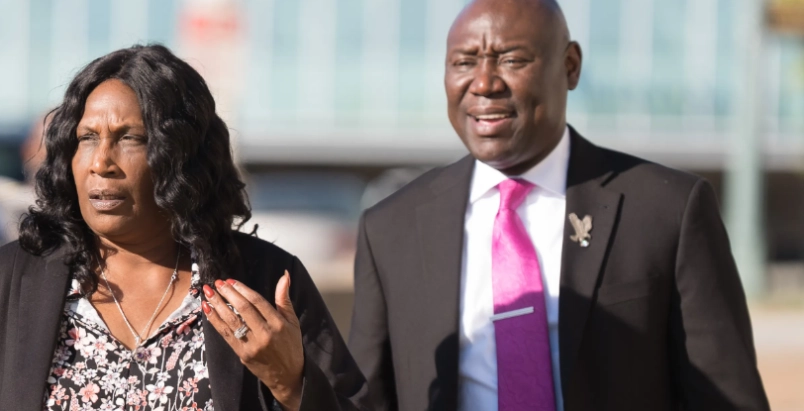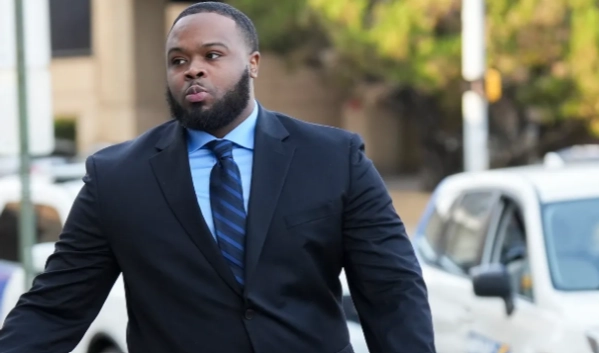Table of Contents
Understanding the Tyre Nichols Verdict: Implications and Reactions
Explore the mixed verdict in the Tyre Nichols case, its implications for police reform, and community reactions to the guilty verdicts. The recent verdict in the Tyre Nichols case has sent ripples through Memphis and beyond, igniting discussions on police accountability and systemic reform.
The trial, which centred around the brutal beating of Nichols by former Memphis police officers, concluded with a mixed verdict that has left many in the community seeking justice and clarity. This article delves into the details of the verdict, its implications for law enforcement practices, and the broader societal context surrounding this pivotal case.
Background of the Case
 Tyre Nichols, a 29-year-old Black man, was stopped by police on January 7, 2023, for alleged reckless driving. The encounter escalated rapidly, leading to Nichols being violently beaten by several officers from the Memphis Police Department. He succumbed to his injuries three days later, sparking widespread outrage and protests demanding justice.
Tyre Nichols, a 29-year-old Black man, was stopped by police on January 7, 2023, for alleged reckless driving. The encounter escalated rapidly, leading to Nichols being violently beaten by several officers from the Memphis Police Department. He succumbed to his injuries three days later, sparking widespread outrage and protests demanding justice.
The incident was captured on body cameras and surveillance footage, which later surfaced and showed the harrowing details of the encounter. The public outcry following Tyre Nichols’ death highlighted long-standing issues regarding police brutality, particularly against Black individuals in America.
The Verdict Explained
After a lengthy trial that garnered significant media attention, three former Memphis police officers were found guilty of obstruction charges related to their actions during Tyre Nichols’ arrest. However, they were acquitted of more serious charges directly linked to Nichols’ death. This mixed verdict has raised questions about accountability within law enforcement agencies.
Key Points from the Verdict
- Guilty on Obstruction Charges: The jury found that the former officers had obstructed justice by failing to report their colleagues’ excessive use of force during the arrest. This decision underscores a critical aspect of police culture where silence among officers can perpetuate misconduct.
- Acquittal on More Serious Charges: The officers were acquitted of charges related to second-degree murder and aggravated assault. This outcome has left many community members feeling frustrated and disillusioned with the justice system.
- Sentencing Implications: Sentencing for the obstruction charges is expected to take place in the coming weeks. Legal experts suggest that while these charges carry lighter penalties than murder charges, they still reflect a recognition of wrongdoing.
Community Reactions
 The mixed verdict has elicited strong reactions from various segments of society. Community activists and leaders have expressed disappointment over the acquittals but remain hopeful that this case will catalyze change within law enforcement practices.
The mixed verdict has elicited strong reactions from various segments of society. Community activists and leaders have expressed disappointment over the acquittals but remain hopeful that this case will catalyze change within law enforcement practices.
Protests and Demonstrations
Following the announcement of the verdict, protests erupted in Memphis, with demonstrators calling for comprehensive police reform and accountability. Activists emphasized that while some progress has been made with the guilty verdicts on obstruction charges, much work remains to be done to address systemic issues within policing.
Calls for Reform
Community leaders are urging local and state officials to implement reforms aimed at preventing future incidents of police brutality. These calls include:
- Enhanced Training Programs: Advocates are pushing for improved training focused on de-escalation techniques and cultural competency.
- Greater Accountability Measures: There is a demand for stronger oversight mechanisms to ensure that officers who engage in misconduct are held accountable.
- Community Engagement Initiatives: Building trust between law enforcement agencies and communities is seen as vital for fostering a safer environment.
Broader Implications for Police Accountability
The Tyre Nichols case is emblematic of larger issues facing law enforcement across the United States. As communities grapple with incidents of police violence, this trial serves as a critical moment for reflection on how policing is conducted in America.
National Context
The mixed verdict resonates beyond Memphis; it reflects ongoing national conversations about race, justice, and policing practices. High-profile cases like those of George Floyd and Breonna Taylor have similarly sparked movements advocating for systemic change within law enforcement.
Legislative Responses
In response to public outcry over police violence, several states have introduced legislation aimed at reforming policing practices. These measures include:
- Banning Chokeholds: Many jurisdictions are moving towards prohibiting chokeholds and other dangerous restraint techniques.
- Body Camera Mandates: Increased requirements for body cameras aim to enhance transparency in police interactions with civilians.
- Community Oversight Boards: Establishing independent boards composed of community members can provide oversight over police actions and policies.
Conclusion: A Call for Continued Advocacy
The verdict in the Tyre Nichols case highlights both progress and setbacks in the pursuit of justice for victims of police violence. While guilty findings on obstruction charges signal some accountability, they also underscore the need for continued advocacy toward comprehensive reform in policing practices. As communities rally together to demand change, voices advocating for justice must remain loud and persistent.
The fight against systemic racism and violence within law enforcement is far from over; it requires ongoing commitment from individuals, organizations, and policymakers alike. In summary, while this verdict may not provide all the answers or solutions sought by advocates for justice, it serves as a pivotal moment in an ongoing dialogue about policing in America—one that must continue until meaningful change is achieved.
This article aims to provide an informative overview of the Tyre Nichols verdict while exploring its implications for policing practices and community responses. By focusing on factual information presented in an accessible manner, we hope to enhance understanding among readers regarding this significant issue affecting society today.
